| | |||||||||||||||||||||
| |||||||||||||||||||||
| Turnout | 20,472 (50.19%) | ||||||||||||||||||||
|---|---|---|---|---|---|---|---|---|---|---|---|---|---|---|---|---|---|---|---|---|---|
| |||||||||||||||||||||
| |||||||||||||||||||||
The 1914 Wellington City mayoral by-election was part of the New Zealand local elections held that same year. The polling was conducted using the standard first-past-the-post electoral method.
| | |||||||||||||||||||||
| |||||||||||||||||||||
| Turnout | 20,472 (50.19%) | ||||||||||||||||||||
|---|---|---|---|---|---|---|---|---|---|---|---|---|---|---|---|---|---|---|---|---|---|
| |||||||||||||||||||||
| |||||||||||||||||||||
The 1914 Wellington City mayoral by-election was part of the New Zealand local elections held that same year. The polling was conducted using the standard first-past-the-post electoral method.
John Luke had been Mayor of Wellington since his election in 1913. [1] Luke sought re-election against former Mayor David McLaren who was defeated by Luke a year earlier and stood for the mayoralty once again. [2] The third contestant was John Glover, a newspaper editor, who entered the contest for the newly formed Social Democratic Party (SDP), a more radical labour party. Harry Holland was originally selected as the SDP candidate, but was unable to contest the mayoralty as he was engaged in a sedition case so Glover stood in his place. [3] The divisions were deepened by McLaren's statement that SDP ringleader Bob Semple (later a councillor) was "as free from political principles as a frog from feathers". [4] Glover's entry cut into McLaren's support base causing his polling to fall sharply from the previous two elections. Regardless of the divided labour vote, Luke won the contest with an outright majority.
The election came at the same time as the 1913 Great Strike, which began on the Wellington waterfront intensifying anti-Labour sentiment which assisted Luke in increasing his majority. [4]
The following table gives the election results:
| Party | Candidate | Votes | % | ±% | |
|---|---|---|---|---|---|
| Citizens League | John Luke | 11,555 | 56.44 | +5.15 | |
| United Labour | David McLaren | 4,548 | 22.21 | −26.50 | |
| Social Democrat | John Glover | 4,369 | 21.34 | ||
| Majority | 7,007 | 34.22 | +31.64 | ||
| Turnout | 20,472 | 50.19 | −6.83 | ||
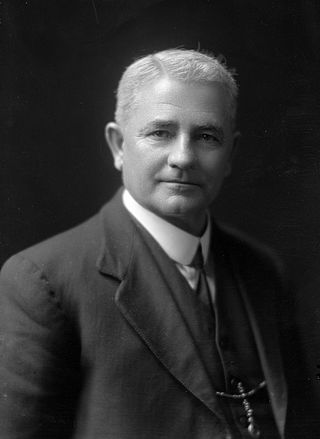
Henry Edmund Holland was an Australian-born newspaper owner, politician and unionist who relocated to New Zealand. He was the second leader of the New Zealand Labour Party.
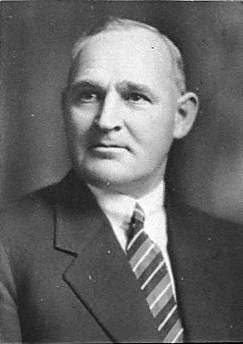
Frank Langstone was a New Zealand Member of Parliament, Cabinet Minister and High Commissioner to Canada.
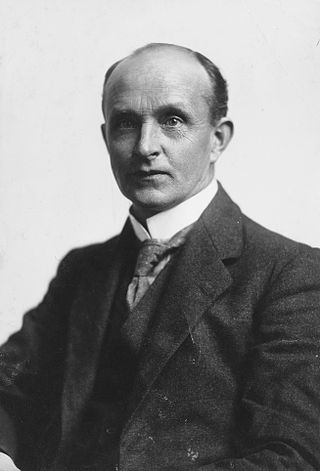
James (Jimmy) McCombs was a New Zealand Member of Parliament for Lyttelton.
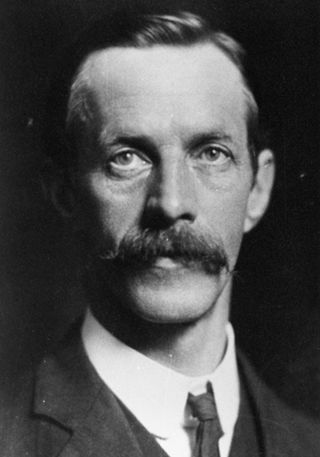
David McLaren was a Mayor of Wellington and Member of Parliament in New Zealand.

Robert Fletcher was a New Zealand politician of the Liberal Party.

Robert Alexander Wright was the Mayor of Wellington from 1921 to 1925, and a New Zealand politician of the Reform Party.
The Wellington North by-election of 1918 was a by-election held in the Wellington North electorate during the 19th New Zealand Parliament, on 12 February 1918. It was caused by the resignation of incumbent MP Alexander Herdman of the Reform Party, who was appointed as a judge of the Supreme Court, and was won by John Luke with a majority of 420.
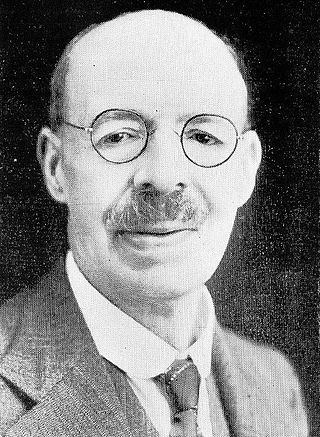
John Glover was a New Zealand politician and trade unionist. He was an organiser and candidate for the United Labour, Social Democratic Party then the Labour Party serving time in local government.

The 1912 Wellington City mayoral election was part of the New Zealand local elections held that same year. In 1911, elections were held for the Mayor of Wellington plus other local government positions. Thomas Wilford, the incumbent Mayor, resigned due to ill health and did not contest the ensuing election. David McLaren was elected to office as the new Mayor of Wellington, beating three other contenders and becoming the city's first Labour Mayor. The polling was conducted using the standard first-past-the-post electoral method.
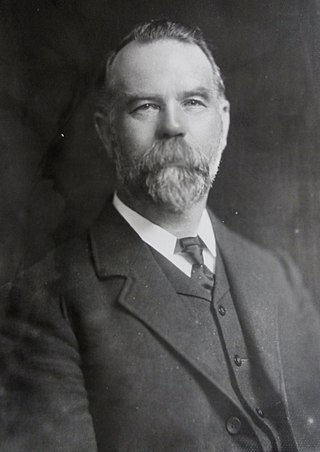
The 1913 Wellington City mayoral election was part of the New Zealand local elections held that same year. In 1913, elections were held for the Mayor of Wellington plus other local government positions including fifteen city councillors. David McLaren, the incumbent Mayor, was defeated by John Luke by a relatively narrow margin, becoming the new Mayor of Wellington. The polling was conducted using the standard first-past-the-post electoral method.
The 1915 Wellington City mayoral election was part of the New Zealand local elections held that same year. In 1915, elections were held for the Mayor of Wellington plus other local government positions including fifteen city councillors. John Luke, the incumbent Mayor, retained office tallying just ten votes fewer than he did two years earlier. The standard first-past-the-post electoral method was used to conduct polling.
The 1921 Wellington City mayoral election was part of the New Zealand local elections held that same year. In 1921, elections were held for the Mayor of Wellington plus other local government positions including fifteen city councillors. The polling was conducted using the standard first-past-the-post electoral method.

The 1933 Wellington City mayoral election was part of the New Zealand local elections held that same year. In 1933, elections were held for the Mayor of Wellington plus other local government positions including the fifteen city councillors, also elected biannually. Thomas Hislop, the incumbent Mayor sought re-election and retained office unopposed with no other candidates emerging. The polling was conducted using the standard first-past-the-post electoral method.

The 1941 Wellington City mayoral election was part of the New Zealand local elections held that same year. In 1941, elections were held for the Mayor of Wellington and fifteen city councillors plus seats on the Wellington Hospital Board and Wellington Harbour Board. The polling was conducted using the standard first-past-the-post electoral method.

The 1944 Wellington City mayoral election was part of the New Zealand local elections held that same year. In 1944, election were held for the Mayor of Wellington plus other local government positions including fifteen city councillors. The polling was conducted using the standard first-past-the-post electoral method.
The Wellington Citizens' Association, was a right-leaning local body electoral ticket in Wellington, New Zealand. It was formed in 1911 by merging the selection process of council candidates of several civic interest groups and business lobby groups. Its main ambitions were to continue to control the Wellington City Council, reduce local spending and deny left-leaning Labour Party candidates being elected.

The 1950 Wellington City mayoral election was part of the New Zealand local elections held that same year. In 1950, elections were held for the Mayor of Wellington plus other local government positions including fifteen city councillors. The polling was conducted using the standard first-past-the-post electoral method.

The 1956 Wellington City mayoral election was part of the New Zealand local elections held that same year. In 1956, elections were held for the Mayor of Wellington plus other local government positions including fifteen city councillors. The polling was conducted using the standard first-past-the-post electoral method.

The 1959 Wellington City mayoral election was part of the New Zealand local elections held that same year. In 1959, elections were held for the Mayor of Wellington plus other local government positions including fifteen city councillors. The polling was conducted using the standard first-past-the-post electoral method.

The 1965 Wellington City mayoral election was part of the New Zealand local elections held that same year. In 1965, elections were held for the Mayor of Wellington plus other local government positions including fifteen city councillors. The polling was conducted using the standard first-past-the-post electoral method.